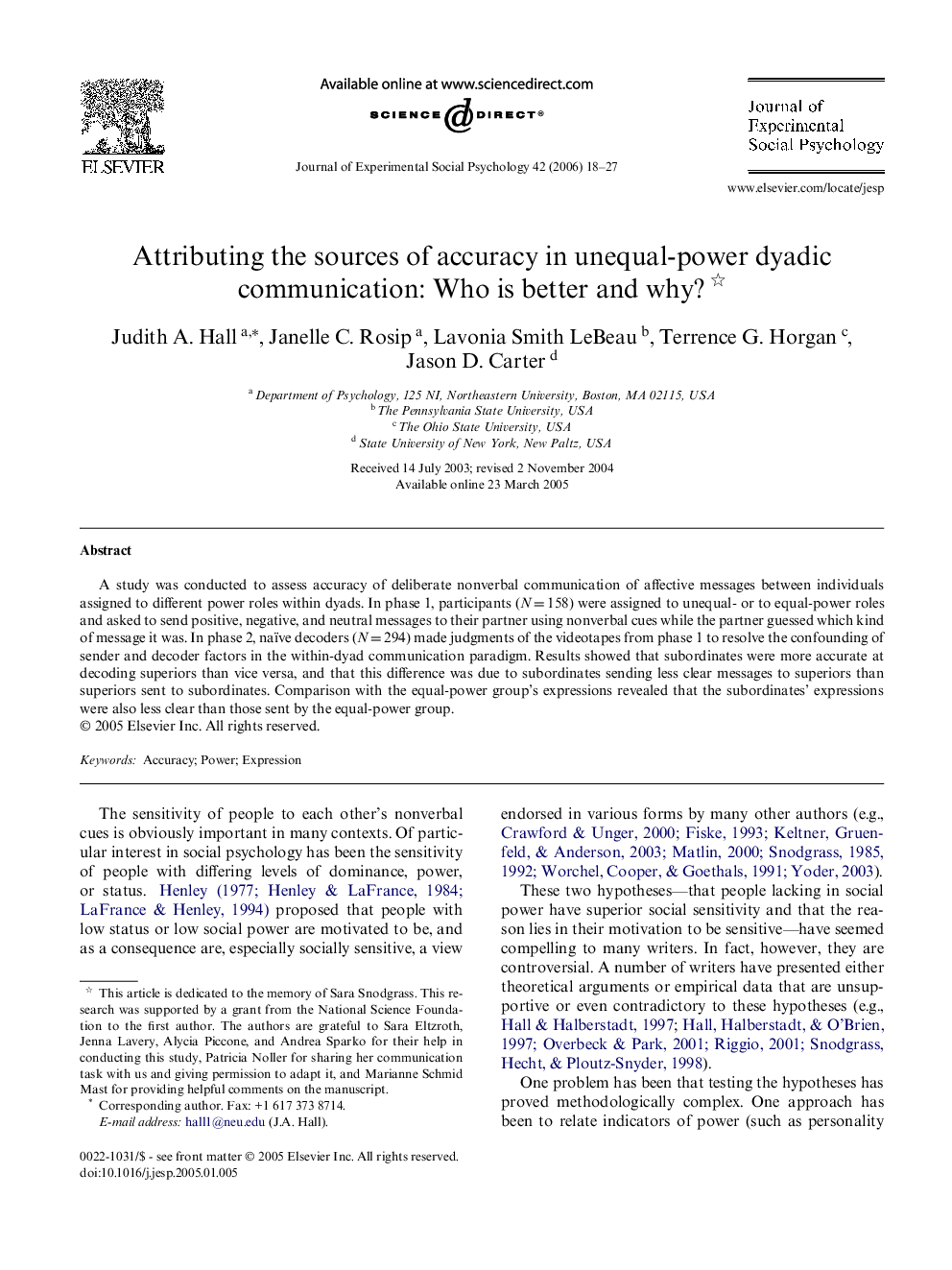| Article ID | Journal | Published Year | Pages | File Type |
|---|---|---|---|---|
| 948949 | Journal of Experimental Social Psychology | 2006 | 10 Pages |
A study was conducted to assess accuracy of deliberate nonverbal communication of affective messages between individuals assigned to different power roles within dyads. In phase 1, participants (N = 158) were assigned to unequal- or to equal-power roles and asked to send positive, negative, and neutral messages to their partner using nonverbal cues while the partner guessed which kind of message it was. In phase 2, naïve decoders (N = 294) made judgments of the videotapes from phase 1 to resolve the confounding of sender and decoder factors in the within-dyad communication paradigm. Results showed that subordinates were more accurate at decoding superiors than vice versa, and that this difference was due to subordinates sending less clear messages to superiors than superiors sent to subordinates. Comparison with the equal-power group’s expressions revealed that the subordinates’ expressions were also less clear than those sent by the equal-power group.
